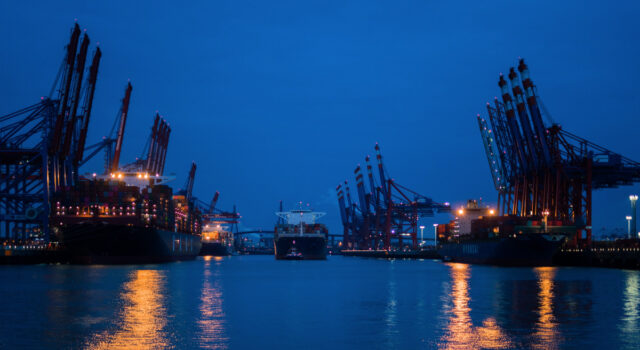By Kristina Touzenis, Managing Partner BST-Impact
Comments on the proposed DIRECTIVE OF THE EUROPEAN PARLIAMENT AND OF THE COUNCIL amending Directive 2013/34/EU, Directive 2004/109/EC, Directive 2006/43/EC and Regulation (EU) No 537/2014, as regards corporate sustainability reporting
The proposed directive is not only forthcoming because of the increased focus on sustainability factors, but because without common rules across the EU area there would be a risk of different reporting requirements in different MSs, which would generate additional costs for companies operating across borders and undermine the single market.
That means that implementation of it from a Market perspective will improve company resilience, given that better reporting raises companies’ awareness of sustainability-related risks and improves risk management. It should also lead to advantages for more sustainable companies, since sustainability front-runners will be more easily identifiable.
It is quite interesting and very positive
that the EU and therefore its MSs are seeing
the clear link between a stable and
prosperous market and sustainable
companies.
This is not only a realization of the fact that there are real risks of not being sustainable from a business perspective, that both consumers and retailers want more sustainable brands – and as social media ever increases in importance, examples of poor “sustainability behaviour” will emerge and result in reputational damage and a financial impact with share price fluctuations and a risk of losing value due to reparation and compensation. (1)
It is also a recognition of the fact that operating in a way that truly works towards the realization of the SDGs will create prosperity and more reliable markets as well as being about respecting people’s inalienable rights.
Under the proposal, in-scope companies would have to report information on the full range of ESG issues relevant to their business, in accordance with mandatory EU sustainability reporting standards.
This includes information on all “sustainability matters” as defined by the proposal. These are: environmental, social and employee matters, respect for human rights, anti-corruption and anti-bribery matters, and governance matters. More proportionate standards will be developed for listed SMEs.
The proposal is intended to reduce systemic risks to the economy and to improve the allocation of financial capital to companies and activities that address social, health and environmental problems. The accountability issue is a constant in the express desire that it will make companies more accountable for their impacts on people and the environment, thereby building trust between them and society.
There is a recognition that sustainability reporting is the subject of increasing interest and regulatory intervention in jurisdictions around the world and that it is in line with EU fundamental values and underlying principles to develop a coherent and comprehensive approach to sustainability reporting, in order to be able to engage in these debates, and perhaps even be showing commitment to EU and CoE Conventions which for decades have been the underpinning of EU legislation and values on most issues.
Compared to individual action by Member States, which is to be expected, as can be seen by e.g. German legislation on human rights due diligence in supply chain, EU intervention can ensure a significant European contribution to global policy developments, in order to better defend the interests of European companies and other stakeholders.
(1) Broadly speaking risks of NOT being sustainable – and being able to show it – range from: Penalties/fines as a result of breaches of regulations (e.g. EU SDFR); Litigation – see e.g. Shell having a case litigated in the UK even if the damage was overseas; Loss of social / regulatory licence to operate; Reputational cost in a society where consumers are ever more demanding that the products they have access to are sustainably produced; Competing with firms who will obtain increased revenues/profit from “responsible” products/services and who will have improved risk management as well as improved access to capital compared to those who do not operate and show to be operating sustainably.; There will be risks related to inability to make repayments due to environmental/ social costs and simple loss of value. Potential direct liability for investors – who will want to avoid that risk when they make investment decisions: the danger of damage to reputation through association with polluting, exploitative or ‘unethical’ investees – which they will want to avoid thus funnelling their investments elsewhere.
More articles on human right on investESG.eu.
| about
Kristina Touzenis is the Managing Partner of BST Impact. A lawyer and a recognized leader in the effective and concrete operationalization of international human rights standards and principles in complex settings worldwide requiring long-term engagement with a multitude of stakeholders, form both the public and private sectors. She has more than 20 years of experience in advocacy, human rights reporting, monitoring, and evaluating as well as in policy making and negotiating at national, regional, and global level. Kristina founded BST Impact with two other partners in mid 2020, together with a pool of experts to help companies and investors to effectively operationalize ESG criteria, SDGs, international norms and the Business and Human Rights agenda into their respective sustainable business strategies, investment processes and risk assessment management systems. Previously, Kristina created the International Law Unit at the International Organization for Migration – IOM, the UN Agency for Migration and served as Head of the Unit from 2011 to 2020. She engaged with government counterparties on legislation development and review as well as with other Agencies within the UN common system, on advocacy and implementation of programmes worldwide. Prior to her appointment at the IOM HQ, Kristina worked from 2006 to 2011 in the IOM Regional Office for the Mediterranean Region, on translating international norms and standards into practice on the ground and from 2002 to 2006 on implementing children’s rights in the Mediterranean Region for an NGO.
| All opinions expressed are those of the author. investESG.eu is an independent and neutral platform dedicated to generating debate around ESG investing topics.








